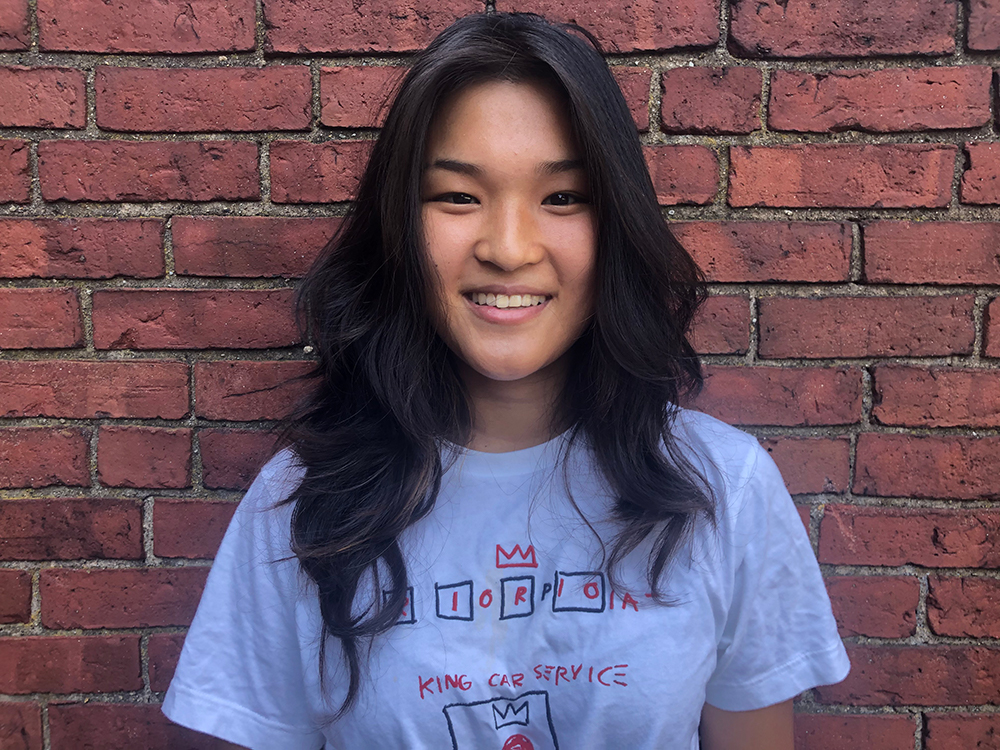I never really got into TikTok. Instead, I rely on survival of the fittest — the best TikToks will make it onto Instagram Reels, where I happily reside, so I won’t miss out even when the app’s not on my phone.
Whether you like the app or not, if you’re in my generation, it seems as if you can’t escape it.

When you hang out with your friends, they’ll spend the whole time scrolling through their “For You” page. At the supermarket, there will always be kids giggling in the cereal aisle while learning a new dance. In the news, BuzzFeed is always covering a brand new TikTok trend that went viral last week.
So what made TikTok so popular? The app’s creators nailed down exactly how to make it so addicting. Each post is around 15 seconds. Each user’s feed — the FYP — is perfectly curated to their interests using a computer algorithm. Anyone’s video has a chance to go viral, and anyone can become an influencer.
The appeal of the app is pretty damning. Everyone with a phone has probably witnessed the TikTok addiction wash over the world in the past few years.
With that being said, I’m concerned about the negative impact this revolutionary app will have on its more than 100 million active users in the United States alone — and even the people outside of its community.
The norm on TikTok is to jump on the bandwagon of popular trends, either to have fun or in hopes of achieving internet fame. However, some of these trends just seem alarming and dangerous, and the videos blow up at the expense of the creators or the people who were filmed.
For example, some TikTokers who contracted COVID-19 quickly learned they could easily chug Everclear and other strong liquors due to their loss of smell. So, they posted videos attempting to do so.
The “new teacher” challenge in August made many people who have a disability the butt of the joke, filming shocked responses to their photos.
And a viral tutorial last year demonstrated how to shave one’s teeth down at home to achieve the perfect Instagram look, which is obviously dangerous and not recommended by dentists.

Clearly, there’s no criteria for how to make a TikTok challenge popular or trendy. It just has to be entertaining enough to try and watch. But seriously, at what cost?
For example, Paige Niemann — who has nearly 9 million followers on TikTok — is a 16-year-old who realized she could impersonate Ariana Grande really well, and she’s never looked back. Her followers agree: she’s gotten too good at the Grande squints and smiles.
Will she be able to grow up to be her own person, independent of her impersonation? Is she too young to deal with fame by herself? Are enough people asking these questions, or are they gobbling up the content?
The curated FYP is equally as dangerous to the people scrolling on it all day long. Because of TikTok’s algorithm, we only see what we want to see, creating a singular, narrow perspective.
When QAnon, a collection of discredited far-right conspiracy theories, began to take shape during former President Donald Trump’s term in office, their TikTok posts took hold of many users on the platform who were unaware of the falsities and continued to absorb the posts on their feed.
Yet most TikTok users are not oblivious to these dangers.
My friends constantly joke about their “lack of attention span” due to scrolling through 15-second videos all day. They know how scary it is their FYP somehow knows exactly what they’re interested in. They’re aware of how long they can mindlessly scroll through the app in one sitting.
My concern doesn’t lie in the ignorance of users on the app. I’m more worried about our acceptance and normalization of TikTok’s dangers.
The makers of TikTok rely on the “it is what it is” mentality of its young users. Sixteen to 24 year olds make up 41 percent of the social media platform.
Obviously, there’s nothing we can do about the entirety of the app. After all, people voiced their similar concerns when MySpace, Twitter and Instagram all came out.
TikTok in its entirety isn’t all bad, and I can’t ignore some of its great opportunities.
People have spread many important stories and perspectives, psychologists have shared their quick advice on mental health and lesser-known musicians have widened their fan bases because their songs trended on the app.
However, it’s time to take back control of what we want out of the platform. Most importantly, we need to take a little bit of responsibility for what we do on TikTok, even if a lot of us are kids.
If we see a problematic trend, we have a choice in our participation and we have the chance to speak up about it. We need to be aware that everything we see on TikTok is arbitrary, especially in terms of politics and fact-checking.
I’m wary of celebrities and organizations joining the TikTok wave, too. While they have found the thrill of participating in trends, it feels as though they are consciously complicit in the dark ongoings of the app.
I’d even ask people and organizations of influence to stay off of TikTok, unless it were for entertainment or enrichment. A child’s addiction should not be anyone’s profit, and influencers should hold themselves accountable the most.
I hope TikTok’s most addicted users can take a step back to look at a reality, where our success doesn’t rely on the shock factor of 15 seconds. While your attention is a highly sought-after commodity on these apps, you have more to offer as a human being — on and off TikTok.






















































































































